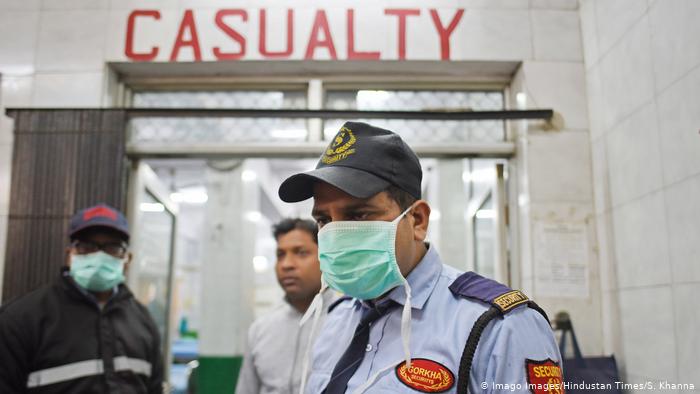
South Asian nations will come together for the first time in more than five years on Sunday to discuss the outbreak of the novel coronavirus and chart a roadmap to prevent it from spreading across the region. The meeting, to be held via video conference, was proposed by Indian Prime Minister Narendra Modi on Friday.
Modi called on the leaders of the South Asian Association of Regional Cooperation (SAARC) to "chalk out a strong strategy" to deal with the pandemic. While almost all South Asian leaders are expected to attend the virtual summit, Pakistan said it will be represented by its Special Assistant to Prime Minister (SAPM) on Health, Zafar Mirza.
"The threat of #COVID-19 requires coordinated efforts at the global and regional level. We have communicated that SAPM on Health will be available to participate in the video conference of #SAARC member countries on the issue," said Pakistan's Foreign Office spokesperson Aisha Farooqui.
The SAARC, a regional grouping set up to boost ties among South Asian nations, has been defunct since India pulled out of the 2016 Islamabad summit.
Modi's proposal has revived hopes of cooperation among the eight member nations: Pakistan, Afghanistan, Bangladesh, Bhutan, India, Maldives, Nepal and Sri Lanka. "I am confident that our coming together will lead to effective outcomes and benefit our citizens," he said.
Inadequate healthcare systems
As of Saturday, more than 120 confirmed cases have been reported in the region, with India being the worst-hit. Indian officials have recorded 82 infections and two fatalities so far. No other country in South Asia has reported any coronavirus-related deaths yet.
Pakistan has the second-highest number of reported cases in the region: 21, followed by nine cases in the Maldives, seven in Afghanistan, six in Sri Lanka, three in Bangladesh and one each in Nepal and Bhutan.
South Asia has so far been relatively less affected by COVID-19 compared to Europe or East Asia. But experts fear that inadequate healthcare systems, the absence of proper health infrastructure and a lack of hygiene pose a major risk in the region which is home to about 20% of the world's population.
India has put in place some of the world's toughest border restrictions, barring foreigners and even suspending visa-free entry for Indian-origin foreign nationals. It has also closed half of its land borders with neighboring Bangladesh and Nepal. Pakistan too has closed its borders with Iran — one of the countries worst affected by COVID-19 resulting in hundreds of deaths — and Afghanistan.